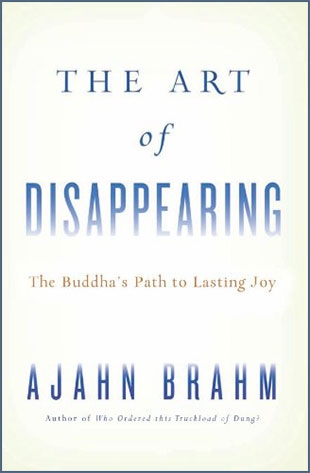Be Content with the Present Moment
"Some years ago I was in Japan and my hosts put me up in a five-star hotel. They had forgotten that they should feed a Theravada monk before midday. By the time we got to a certain high-class restaurant, it was just after noon. I refused to eat, which meant I didn't eat at all that day. I was tired and I just wanted to be quiet and meditate, but it was a noisy hotel. I ended up sitting in this room that people pay a fortune to stay in, thinking, 'I'm in a prison.' I was in prison in a five-star hotel because I didn't want to be there. I soon realized what I was doing and put a stop to that stupid state of mind. But the point is that you can be in prison in a five-star hotel or on a sunny beach. It doesn't really matter where you are; any place you don't want to be is a prison.
"So when you're meditating, ask yourself, 'Do I want to be here in this moment, or do I want to be somewhere else?' If you want to be somewhere else, you'll never be peaceful or get into deep meditation. But if you stop yourself, wisdom will tell you, 'No, this is good enough. I want to be here in this moment, with my aching legs, my itchy nose, in this noisy hut, with my stupid mind — I want to be just here.' When you want to be exactly where you happen to be, you're free.
"I know of a monk who was put in jail in Thailand many years ago. He was innocent. He was sent to jail when he was about to become the Sangharaja, the head of the monastic hierarchy in Thailand, because some other monk who wanted that position accused him of being a communist. He was in jail for two years, during which time he wrote his biography. He loved that time in jail. He didn't have to give any talks, nor speak to people after meals. He had clean, simple food and a nice little room for himself. He said it was wonderful to have so much freedom. If you want to be in the prison cell, you're free.
"That was a deep, powerful wisdom teaching for me. I realized that it doesn't matter what I'm doing or where I am. Whether I'm in an aircraft or answering silly questions or in a crowded city, if I want to be there, then the mind becomes still. At times I wonder, 'Why do I have to do this? This is stupid stuff!' If I do that, of course I suffer. So instead I say, 'No, I want to be here,' and this gives rise to an incredible sense of peace and freedom. Therefore, when you're sitting in your room and the mind isn't still, don't make a problem out of it; simply say, 'I want to be here,' and then it does become still.
"When you want to be right here, right now, you're developing freedom. You're practicing the third noble truth — you're ending craving and stopping the doer. It's a very powerful strategy: wherever you are and whatever you're doing, just ask yourself, 'Do I want to be here or do I want to be somewhere else?' Every time the answer is that you want to be somewhere else, you're creating dukkha. That's simply the second noble truth of the Buddha. Every time you think, 'I'm happy to be just here,' you're ending some of the coarser manifestations of suffering. You're following the Buddha's teaching and the third noble truth.
"When you're content in this moment, it's amazing what the here and now can teach you. My experience is that by just sitting down and wanting to be here, a nimitta — that beautiful old friend — comes up straight away, simply because the mind is still. You've understood that stillness is the same as the mind not moving, the same as not wanting anything and not trying to be somewhere else. Still, most people tend to think, 'I'll get there; I'll do this and I'll do that, and then stillness will come later on.' But it never comes later on. You can only build stillness now, and the only way to do that is by allowing this moment to be. Whatever the moment is like, you should say, 'This is good enough; I want to be here in this moment, right now.' It doesn't matter what you're experiencing; what matters is whether you want to be here or somewhere else.
"So you can be completely free in a prison cell or you can be in prison in a five-star hotel. It's so nice to know that in any place, with any state of mind, you can always be free. Understand that and you understand how wisdom can free you. This is the analaya of the third noble truth, having no place where anything can stick. This is the real meaning of detachment; this is enlightenment stuff."
